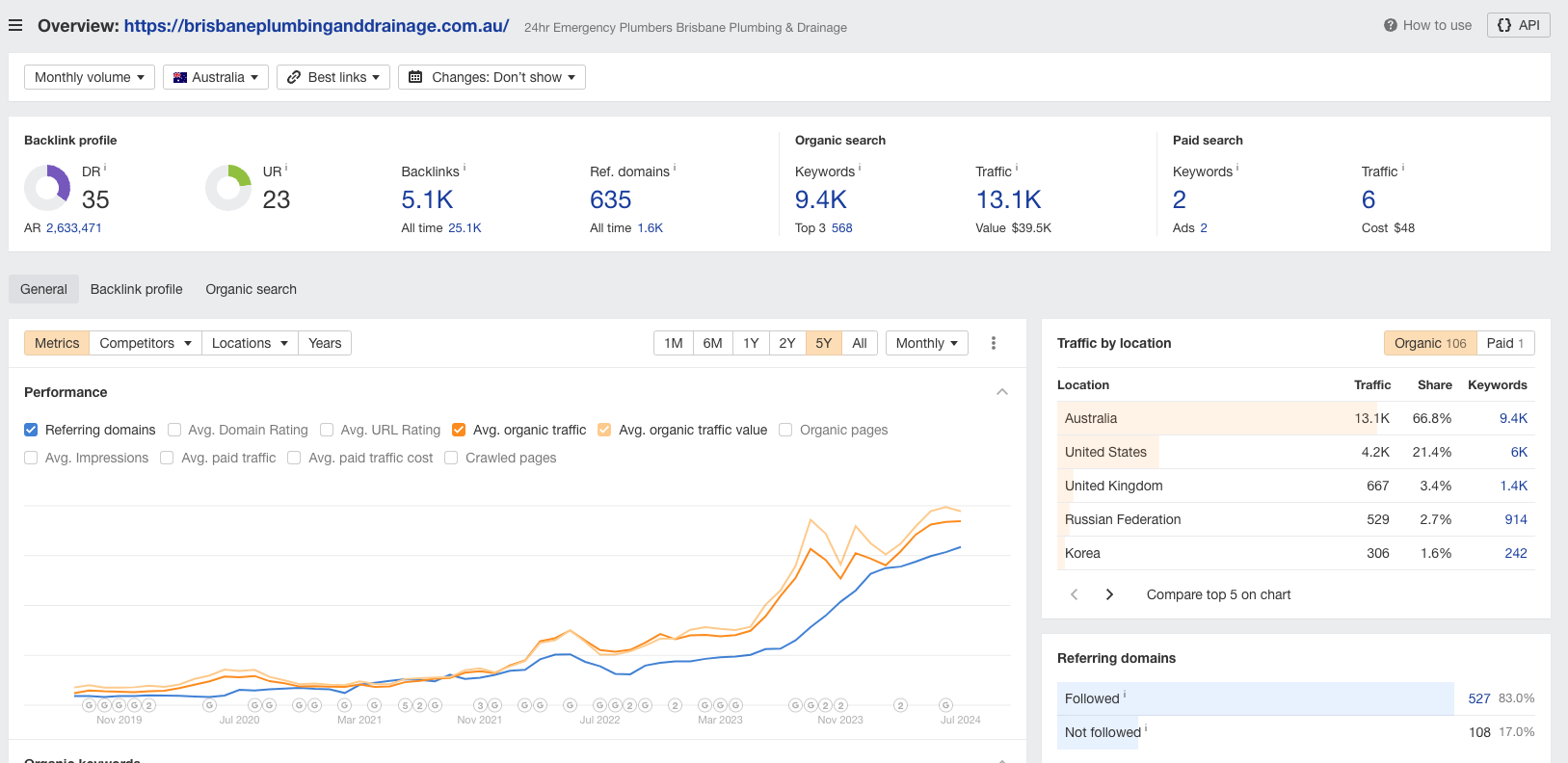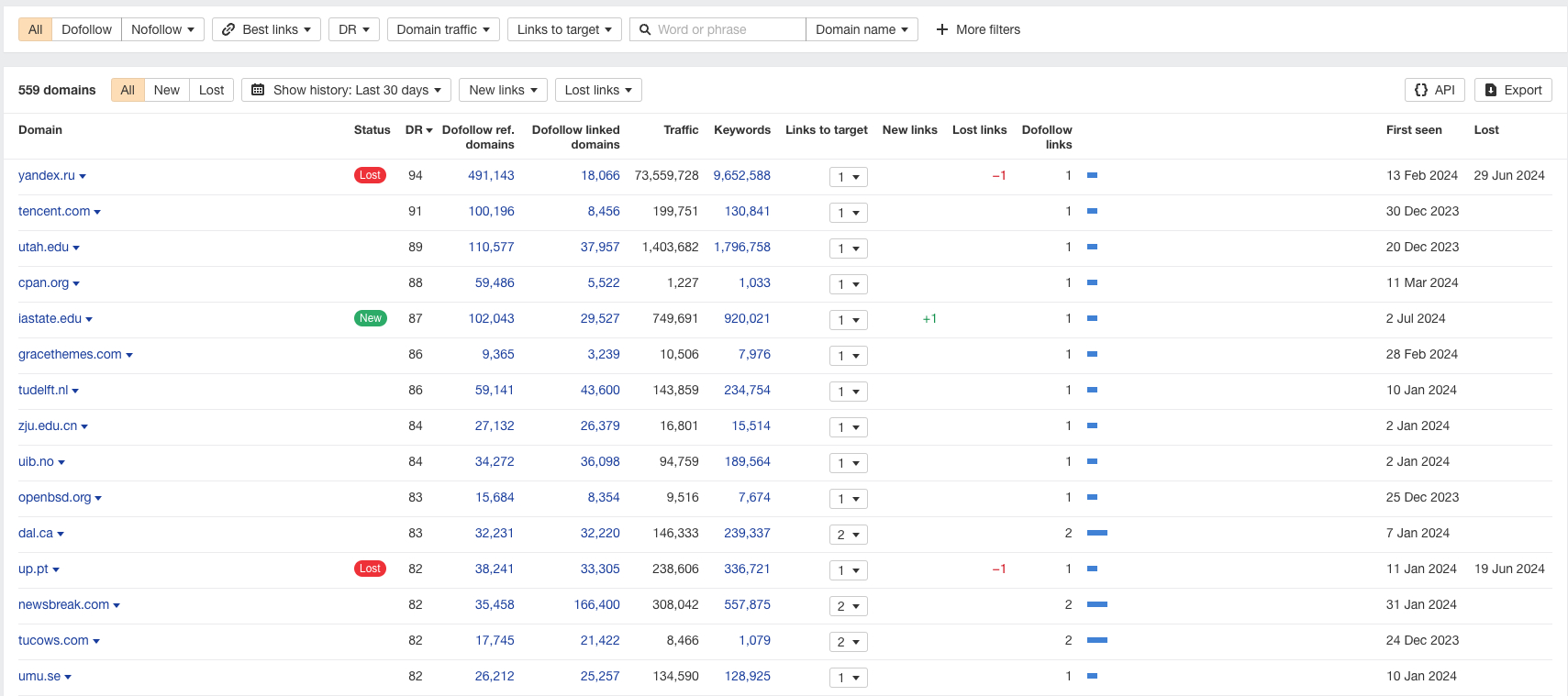
What is a Link Audit?
Post Author: Harry James
Post Date: 11 July 2024
What is a Backlink Audit?
In the ever-evolving landscape of search engine optimisation (SEO), maintaining a healthy backlink profile is crucial for achieving and sustaining high rankings on search engine results pages (SERPs). One of the essential practices to ensure the quality and relevance of your backlinks is conducting a backlink audit. This process, often interchangeably referred to as a link audit or SEO link audit, plays a pivotal role in identifying and addressing issues that might hinder your website’s performance.
Understanding Backlink Audits
A backlink audit involves a thorough analysis of all the backlinks pointing to your website. Backlinks, also known as inbound or incoming links, are links from other websites that lead to your site. They are a critical factor in SEO because search engines view them as endorsements of your content’s quality and relevance. However, not all backlinks are beneficial; some can harm your SEO efforts.
The primary goal of a link audit is to evaluate the quality and relevance of these backlinks. It helps you identify toxic or low-quality links that could negatively impact your site’s ranking and reputation. By conducting regular backlink audits, you can ensure that your backlink profile remains strong, healthy, and aligned with best SEO practices.
Why Conduct a Backlink Audit?

Identifying Toxic Links is crucial in SEO management. Not all backlinks contribute positively to a website’s ranking; some can actually harm it. These harmful links often come from spammy or irrelevant websites and can trigger penalties from search engines. Conducting a thorough backlink audit is essential to uncover such toxic links. This audit involves analyzing factors like domain authority and relevance to identify and subsequently disavow harmful links using tools like Google’s Disavow Tool. By doing so, website owners can safeguard their SEO efforts from being negatively affected by low-quality backlinks.
Recovering from Penalties is a significant concern for websites that have been penalized by search engines due to poor-quality backlinks. These penalties can drastically reduce a website’s visibility and rankings on search engine results pages (SERPs). A comprehensive backlink audit plays a pivotal role in the recovery process by pinpointing the specific links or practices that led to the penalty. Armed with this knowledge, SEO professionals can take corrective actions, such as removing or disavowing harmful links and submitting reconsideration requests to search engines. This proactive approach aims to rectify the issues causing the penalty and restore the website’s favorable standing in search results.
Improving Search Rankings hinges on acquiring high-quality backlinks. Such backlinks from reputable and authoritative websites are crucial signals to search engines of a website’s trustworthiness and relevance. Conducting a meticulous backlink audit enables website owners to identify opportunities to acquire valuable links. By focusing on building relationships with authoritative sites within their industry or niche, website owners can enhance their site’s authority and credibility. This strategic approach not only improves rankings for targeted keywords but also increases organic traffic over time.
Optimising the Link Building Strategy is essential for maximizing the effectiveness of SEO efforts. A thorough backlink audit provides actionable insights into the performance of current link-building activities. By analyzing metrics such as diversity of linking domains, anchor text distribution, and growth of backlinks over time, website owners gain valuable intelligence on what strategies are yielding positive results and which ones require adjustment. Armed with this data-driven understanding, they can refine their link-building strategies accordingly. This approach involves prioritizing tactics that attract natural, organic links from relevant sources while minimizing reliance on manipulative practices. By continually optimizing their link-building strategies based on audit findings, website owners can sustainably improve their site’s visibility and authority in search engine rankings.
Steps to Conduct an Effective Backlink Audit
- Collect Your Backlink Data: Use SEO tools like Ahrefs, SEMrush, or Moz to gather a comprehensive list of all backlinks pointing to your site. These tools provide detailed reports, including the source of each backlink, anchor text, and link quality.
- Analyse Link Quality: Evaluate each backlink for its quality and relevance. Look for signs of spammy or low-quality links, such as links from irrelevant websites, link farms, or sites with poor domain authority.
- Identify Toxic Links: Use SEO tools to identify potentially harmful backlinks. These are links that come from suspicious or spammy sites, have over-optimised anchor texts, or appear to be part of link schemes.
- Disavow Toxic Links: Create a disavow file to submit to Google, listing all the toxic links you want to disavow. This tells Google to ignore these links when assessing your site’s backlink profile.
- Monitor and Review: Regularly monitor your backlink profile to ensure it remains healthy. Schedule periodic backlink audits to stay ahead of potential issues and maintain a strong SEO performance.

Costs of Backlink Audits
The cost of a backlink audit can vary significantly based on several factors:
- Size of the Website: Larger websites with more extensive backlink profiles generally require more time and resources to audit, increasing the cost.
- SEO Tools: Premium SEO tools like Ahrefs, SEMrush, and Moz offer comprehensive backlink analysis features, but they come with subscription fees that can range from $99 to $399 per month or more.
- Professional Services: Hiring an SEO expert or agency to conduct a backlink audit can vary widely in cost. Depending on the complexity of the audit and the expertise of the professional, prices can range from a few hundred to several thousand dollars.
- Frequency of Audits: Regular backlink audits are essential for maintaining a healthy backlink profile. The frequency with which you perform these audits will impact the overall cost.
While the investment in a backlink audit may seem significant, the potential benefits of improved search rankings, recovery from penalties, and a stronger SEO strategy make it a worthwhile expense for most businesses.
A backlink audit is a critical component of a robust SEO strategy. By regularly conducting link audits and addressing any issues with your backlink profile, you can protect your site from penalties, improve your search rankings, and ensure long-term SEO success. In the competitive world of digital marketing, a healthy and high-quality backlink profile is indispensable for achieving and maintaining top positions on SERPs.




